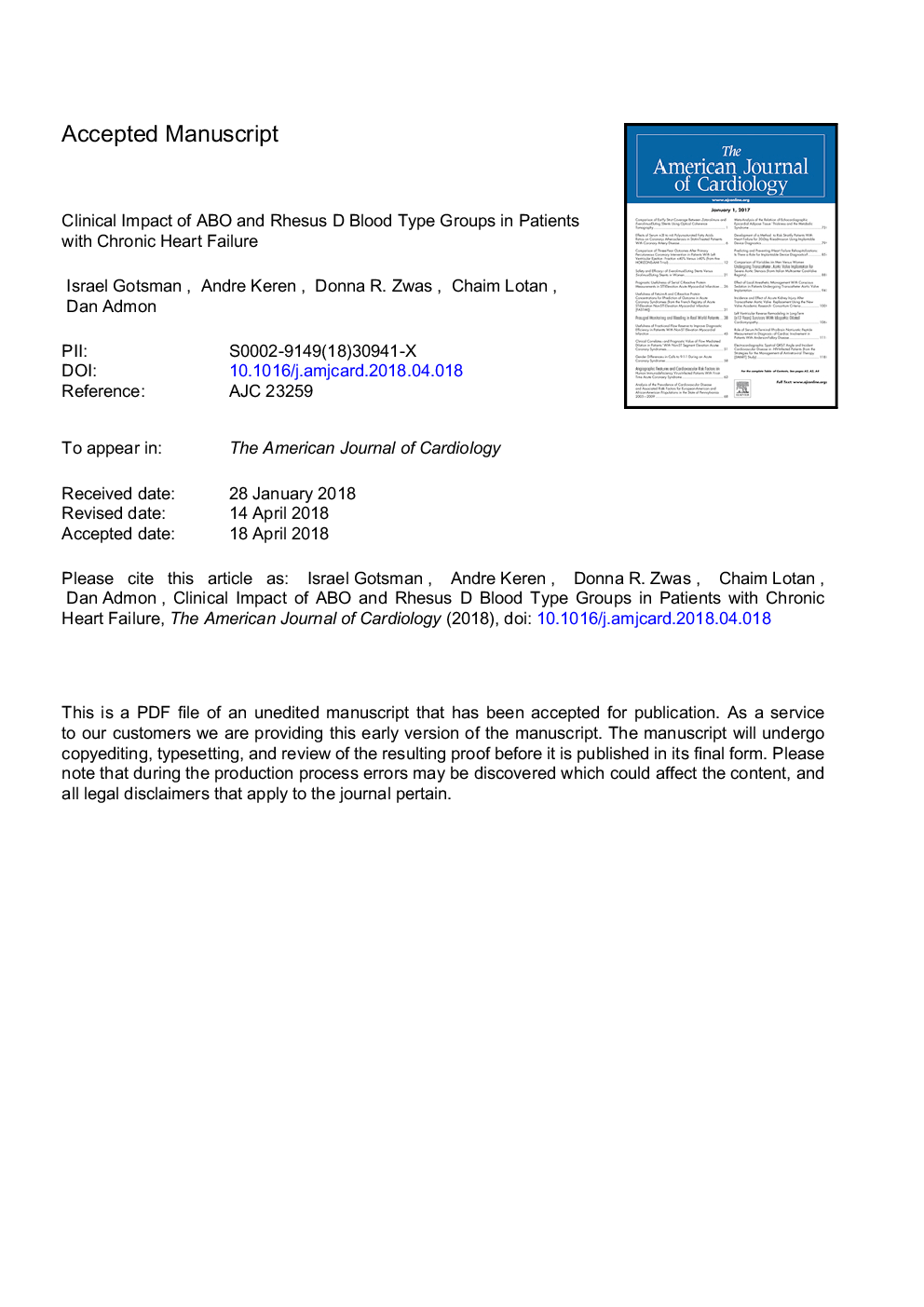| Article ID | Journal | Published Year | Pages | File Type |
|---|---|---|---|---|
| 8962768 | The American Journal of Cardiology | 2018 | 22 Pages |
Abstract
Blood group systems based on red blood cell antigens are genetically determined and can identify patients at risk. Type non-O of the ABO blood group system has been associated with coronary artery disease, thrombosis, and a worse prognosis. The present study evaluated the distribution of blood group types in patients with heart failure (HF) and the impact on clinical outcome. We evaluated the ABO and Rhesus D antigen (RhD) blood types in a large cohort of chronic HF patients (n = 3,815). ABO blood type distribution in the HF population was not significantly different to that reported in the general national population (A 40%, B 20%, AB 8%, and O 33%). The percentage of Rh-negative per blood type was also similar (A 10%, B 9%, AB 10%, and O 7%). Patients with type O were more likely to be hypertensive compared with non-O type. Mean follow-up was 4.2Â years. Overall survival during follow-up was 55%. Cox regression analysis after adjustment for significant predictors demonstrated that RhD-negative was associated with a worse prognosis in patients with ischemic cardiomyopathy (n = 2,881, 76%): hazard ratio 1.26, 95% confidence interval 1.04 to 1.53, p = 0.02. Type non-O was also independently associated with a worse prognosis compared with type O in patients with non-ischemic cardiomyopathy: hazard ratio 1.32, 95% confidence interval 1.04 to 1.67, p = 0.02. In conclusion, blood group type distribution in HF patients are similar to the general population. RhD-negative is associated with a worse prognosis in patients with ischemic cardiomyopathy.
Related Topics
Health Sciences
Medicine and Dentistry
Cardiology and Cardiovascular Medicine
Authors
Israel MD, Andre MD, Donna R. MD, Chaim MD, Dan MD,
